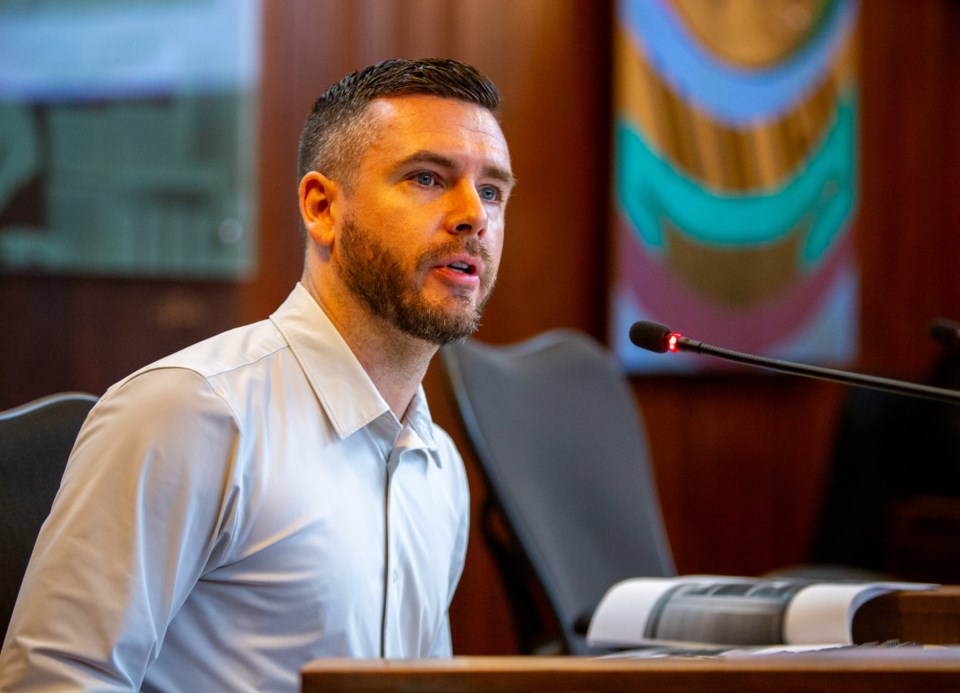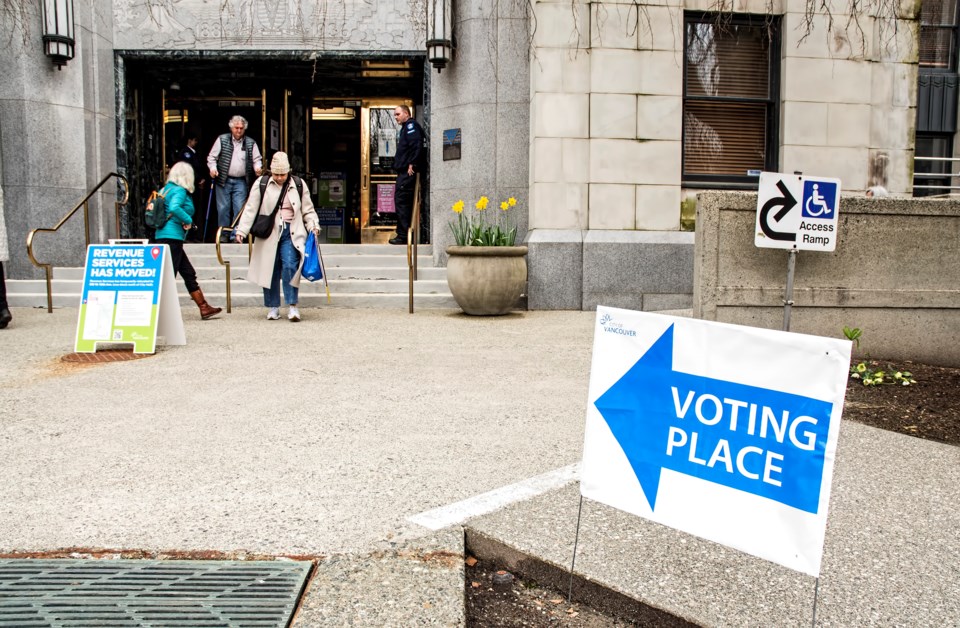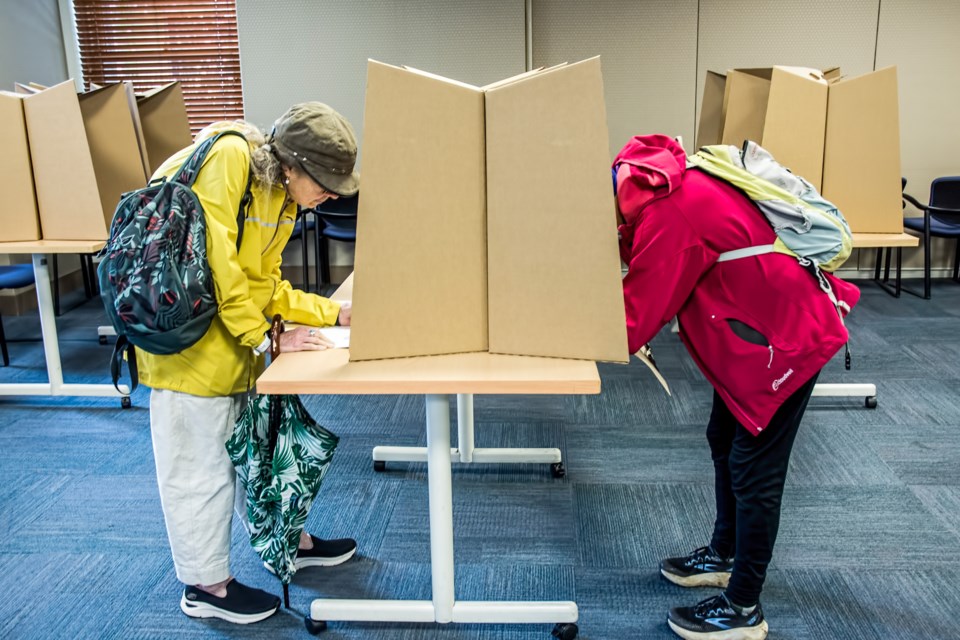Should permanent residents be allowed to vote in Vancouver civic elections?
The previous Gregor Robertson-led council answered yes in 2018 when a unanimous vote sent a request to the provincial government to amend the Vancouver Charter to extend voting rights to an estimated 60,000 permanent residents.
The Union of BC Municipalities (UBCM) made the same request in 2019.
In both cases, the provincial government rejected the requests, arguing then — and via an email Tuesday from the Ministry of Housing and Municipal Affairs — that Canadian citizenship is a requirement to be eligible to vote in either British Columbia provincial elections or Canadian federal elections.
“The Local Government Act and the Vancouver Charter mirror the voter eligibility requirements at the federal and provincial level and provide that only Canadian citizens may vote in local elections,” the ministry said.
The government's response to the UBCM at the time included this statement: "While there may be some support for enfranchising permanent residents at the local level, there are also many strong opinions regarding voter eligibility as a fundamental democratic right of citizenship."
Independent election task force
The idea about giving permanent residents the right to vote in Vancouver elections surfaced in 2017 when council established an independent election task force to recommend changes to increase voter turnout.
Extending voting rights to permanent residents was a recommendation.
“Permanent residents in Vancouver are active members of the city and their communities and contribute to the social and cultural texture and the financial viability of Vancouver through federal, provincial and municipal taxes and user fees associated with municipal programs,” the report said.
“Despite this, permanent residents have not been granted voting rights within Canada.”
Renewed discussion about the recommendation comes as Vancouver hosts another byelection April 5. Vancouver last held a byelection in 2017, where only 11 per cent of eligible voters cast a ballot.
Whether this year’s turnout equals or surpasses the 2017 vote is an open question.
In the meantime, two Vancouver city councillors and a former member of the task force believe extending voting rights to permanent residents should continue to be explored, despite disinterest from the provincial government.

'Pros and cons'
Coun. Peter Meiszner said his partner is a permanent resident and wants to be able to vote.
“He's been living here for five years, he works full time, he pays rent, he pays his taxes and he can't vote for anyone on city council,” said Meiszner, noting his partner may become a citizen by the summer.
“So I certainly think for me, it's personal, and I am in favour of exploring it and looking at all the implications, pros and cons. It's a conversation worth reigniting.”
The ABC Vancouver councillor pointed out there are also people in Vancouver who are not able to have dual citizenship because their country of origin doesn't allow it.
“So they're permanent residents in Canada for a very long time, and they're not able to vote and have a say in a city where they're working, paying taxes and are impacted by the decisions that we make here at the council,” said Meiszner during a break from Tuesday’s council meeting.
Meiszner spoke to BIV on what was the second day of advance voting for the April 5 byelection. Up for grabs are two seats on council left vacant by Christine Boyle and Adriane Carr.
'Highly valuable members of our society'
Green Party Coun. Pete Fry, who ran unsuccessfully in the 2017 byelection, was attending a UBCM meeting Tuesday in Victoria. Fry is a member of the UBCM executive and chair of the resolutions committee.
He said he wants to advance the discussion with permanent residents, immigration specialists, policy makers and the general public to better understand the opportunities and risk of extending voting rights.
“I think the people who are concerned around the value of citizenship versus [permanent residency] might need a little bit more understanding about how [permanent residents] can be, indeed, very contributing and highly valuable members of our society,” Fry said.
He pointed out certain people who own property in Vancouver but don’t live in the city are eligible to vote. That privilege is based on an application to the city and criteria that includes being the registered owner of property in Vancouver for at least 30 days immediately before the day of registration.
The same person must be a Canadian citizen, 18 years old or older and have been a resident in B.C. for at least six months immediately before the day of registration.
“Ironically, we still allow non-resident property owners to vote, and while that enfranchisement is only available to citizens, I think it underscores that we acknowledge voters who have skin in the game as ratepayers should have a say,” Fry said.

'Increase the voting pool'
Tony Hodgson, president of Fair Voting BC, was a member of the task force and continues to push eight years later for permanent residents being allowed to vote in Vancouver elections.
“But who knows whether allowing permanent residents to vote would change the percentage of authorized voters who turn out, but it would increase the voting pool in the same way that reducing the voting age to 16 — which was another measure that we proposed — would do so,” Hodgson said.
Such a move would also expand the number of people that candidates for office would need to reach out to and engage with in their pursuit of getting elected.
“It would represent a different portion of the residents of the city with different demographic characteristics,” he said.
“So if the candidates for office had to become aware of and responsive to their concerns, the hope was that the their concerns would carry through and be reflected in policies passed by the subsequently elected council.”
The definition of a permanent resident applies to someone given status after immigrating to Canada as a refugee, a skilled worker, caregiver or sponsored family member. Such status is the first step to citizenship.
Permanent residents must live in Canada for three years out of a five-year period, or they may lose their permanent resident status.
64,900 permanent residents
Statistics Canada supplied data to BIV that shows there were 264,665 permanent residents (immigrants) living in the Vancouver census metropolitan area in 2021. Of that total, 64,900 people 18 years old or older lived in the City of Vancouver and had not yet obtained their Canadian citizenship and thus did not have the right to vote.
At the time of the task force’s report in 2017, more than 45 countries had granted permanent residents the right to vote, with some regulations and residency restrictions, or both.
The countries included Switzerland, the Netherlands, Sweden, Norway, Ireland, Finland, Slovenia, Australia, New Zealand and seven municipalities in the United States, Hong Kong, Uruguay and Israel.
Also extending voting rights to permanent residents were seven municipalities in the U.S., Hong Kong, Uruguay, Israel, 25 European Union countries such as Switzerland, Netherlands, Sweden, Norway, Ireland, Finland, Slovenia and 15 Commonwealth Nations including Australia and New Zealand.
BIV contacted Mayor Ken Sim's office about whether the mayor would support pushing to extend voting rights to permanent residents.
"With the Vancouver city council byelection currently underway, it would be inappropriate to comment on this matter at this time," the mayor's office said in a statement.
"That said, we are always open to improving democracy and welcome opportunities to work with our provincial counterparts to strengthen our electoral process."
Voter turnout in the October 2022 election that saw Sim and his ABC Vancouver colleagues win a landslide victory was 36.3 per cent.
COPE candidate Sean Orr has included extending voting rights to permanent residents in his platform.
"When I'm knocking on doors, so many people say they want to vote, so many people want to participate in local democracy, but just can't — and it's a real shame, because they pay taxes, they work here, they pay rent here, and it just seems like a no-brainer," said Orr Tuesday while campaigning outside the Broadway Canada Line station.
"Some of our best campaigners are permanent residents who can't vote."




